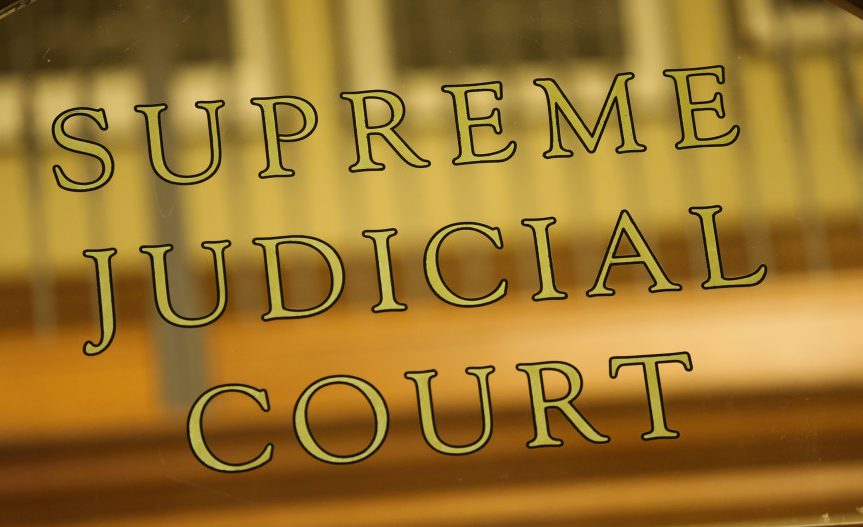
Wendy Murphy: Sex abuse stunner by SJC
Looks like our highest court has hit its lowest low.
This week the Supreme Judicial Court reversed multiple child sex abuse convictions against a man named Eden Jacques. Jacques was convicted by a jury on two counts of assault with intent to rape and multiple counts of indecent assault and battery for the horrible things he allegedly did to two young girls in a Boston apartment.
On appeal he claimed his trial was unfair because his lawyer was forbidden to cross examine one of the girls about another time when she was sexually abused by a different man. Jacques said it was a violation of his constitutional rights because the other man’s abuse was oddly similar to the allegations against him. The oddness of the similarities, he claimed, showed that the child was lying because they were so – you know — odd.
The SJC agreed and reversed all of Jacques’ convictions on the grounds that the prior abuse shared “unique similarities” with the claims against Jacques. A new trial will be held.
So what were those “unique” facts? What was so incredibly unusual that an ivy-league educated panel of judges felt compelled to set a convicted child sex offender free because his lawyer wasn’t allowed to ask about them? Ready for this?
Both men walked around the house naked, and both offered the victim $20 to engage in sexual acts.
That’s it. That’s the shockingly unusual stuff that our illustrious high court thought was so weird the jury couldn’t possibly reach a fair verdict without knowing about it. Mind you, there were two child victims and only one had been previously abused in this “uniquely” similar manner, yet the court dumped all of Jacques’ convictions involving both girls.
The trial judge, to his credit, didn’t buy it. He didn’t think that a child abuser exposing himself or offering a child money was unusual, much less shockingly so, and for good reason. Countless studies of sex offenders recognize that predators who target children will often display their nude genitals to their intended victims in a seemingly benign circumstance, such as showering or walking casually around the house, before they start the abuse. It’s part of the grooming process.
It’s meant to acclimate children to the idea of adult nudity as “normal,” and test the children’s responses. Studies also show that child sex offenders routinely offer incentives, such as money, to coerce children and stop them from reporting abuse. Anyone who thinks of these things as unusual or unique is either ignorant or biased. Judges serving on the highest court in Massachusetts should be neither.
Children deserve better treatment from public officials who are duty bound to ensure justice for all, not some. It’s hardly news that justice for children requires strong legal protections because they lack the physical and intellectual capacity to protect themselves from adults.
Children also need and deserve deferential respect for their credibility because we know they’re not sophisticated enough to lie effectively about serious matters, the way adults can. Yet appellate courts in this state think nothing of creating unjust legal doctrines that discount the credibility of children and expose our most vulnerable citizens to higher risks of abuse.
In one case for example where a 10-year-old boy was raped by his uncle the Supreme Judicial Court reversed the uncle’s conviction because the defense attorney wasn’t allowed to offer evidence that the child “fantasized” about the Tooth Fairy and being a Power Ranger. The court said that since the child was prone to fantasies, he may have fantasized about being raped by his uncle. Only a court steeped in disrespect for children would compare a child’s innocent fantasies about Power Rangers to adult sex.
If Eden Jacques’ decision applied only to him it would be terrible enough because it adds to the pain of two young girls who have suffered enough, but because it is a decision of the Supreme Judicial Court it will impact every sex crime case moving forward, whenever the victim has been involved in prior sexual conduct, consensual or nonconsensual.
Every defense attorney will now argue that their client’s case has facts that are “uniquely similar” to some prior experience of the victim. The Supreme Judicial Court knows this. They know very well that they stabbed a legal butcher knife through the heart of the rape shield statute, a law that is supposed to prevent prior sexual conduct from being used against victims in sex crimes cases.
The court revealed its guilty conscience in protest too much gobbledygook, saying “We emphasize that our holding is not predicated on any overlapping details common of sexual assaults.” Sure it isn’t. And “We emphasize that our decision in this case turns on the similarities … that are unique, specific, and striking…“
Sure it is.
Wendy Murphy is an attorney and longtime victims’ advocate.

